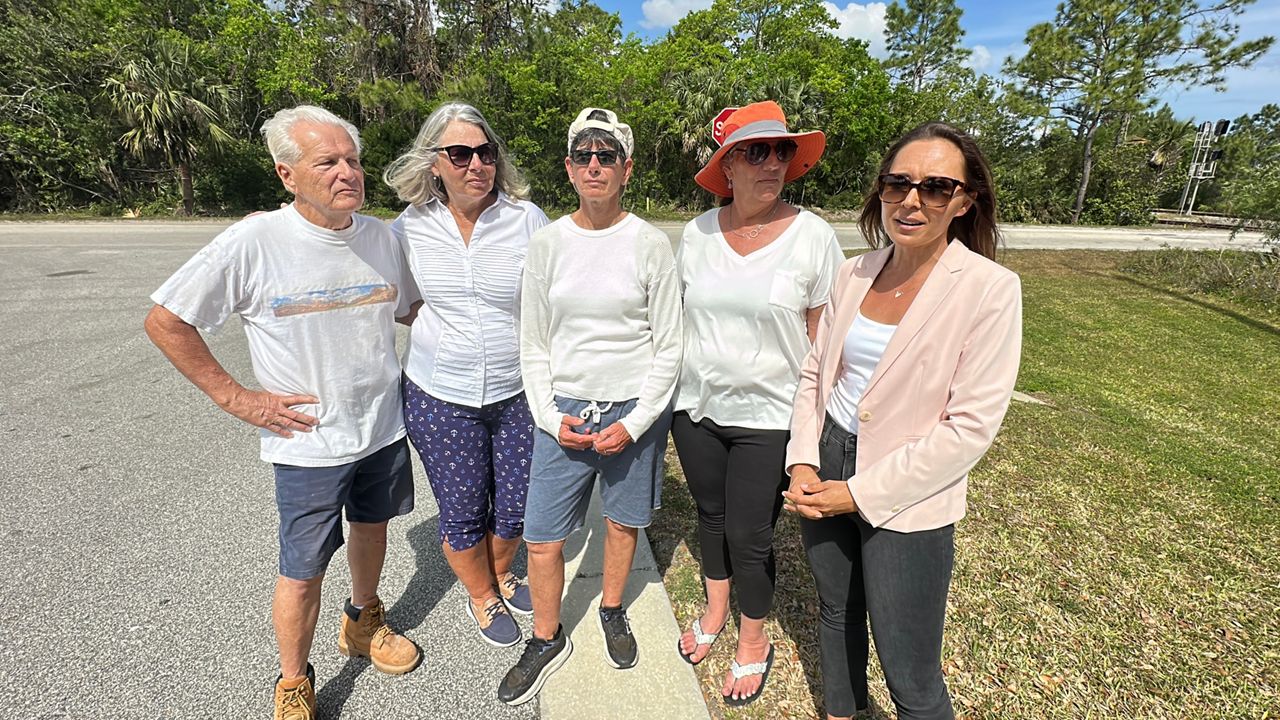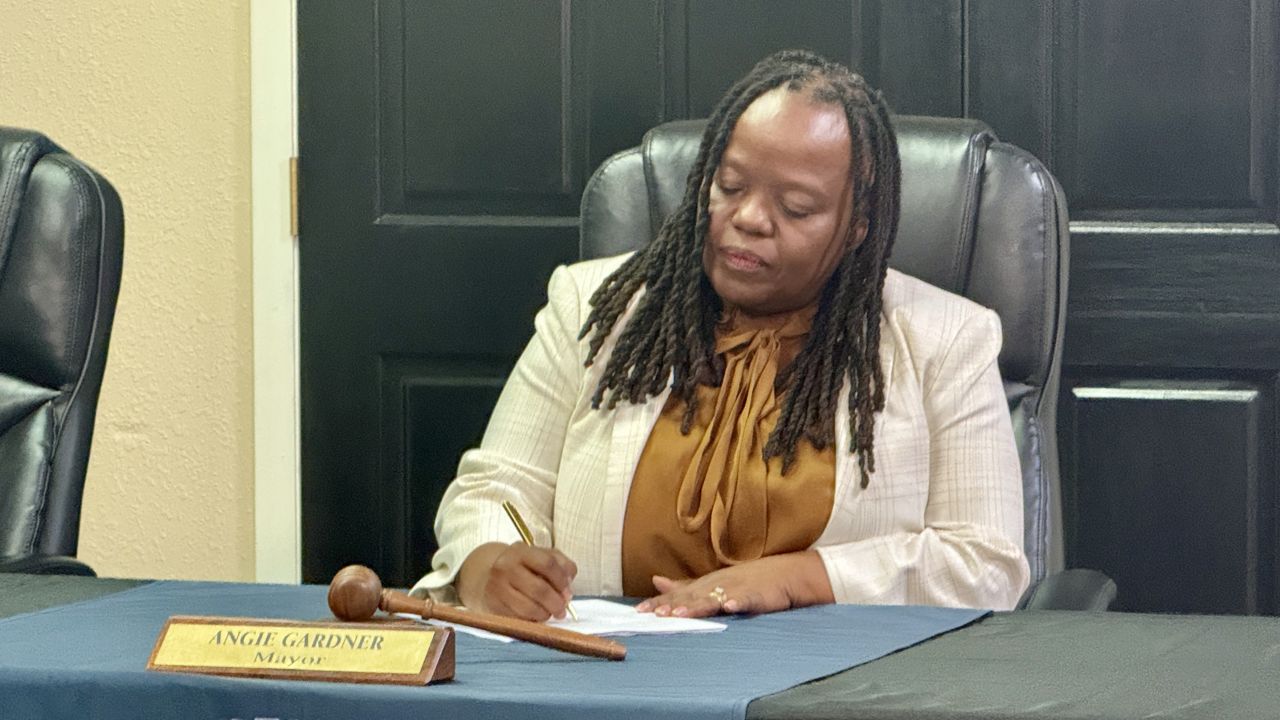TALLAHASSEE, Fla. — A Florida House subcommittee gave the first OK to a bill that would create a pathway for power companies to pay lower rates to solar customers for electricity sent to grid.
RELATED stories
- Critics fear proposal to change net metering will hamper rooftop solar growth statewide
- Proposal to change net metering in Florida sparks strong pushback from solar power advocates
- New report from environmentalists says Florida needs to do much more on rooftop solar
- Beyond the Soundbite: Solar power: A bright idea for Central Florida?
House Bill 741, and its companion Senate Bill 1024, would “redesign” the state’s “net metering” system.
The House Tourism, Infrastructure, and Energy Subcommittee gave the first approved the House version Feb. 3.
What is “net metering”?
Net metering is a rate/credit system that allows solar users to send excess, unused energy generated through their solar panels back to the electric grid, in exchange for credits or payment from the local energy provider.
- WATCH FULL STORY ABOVE: Savings Found In Solar
Jodi James and her husband, David, spent a year researching, and then $35,000 installing solar panels on the rooftop of their Melbourne home.
It’s an investment for the future, Jodi James said. They now generate, on average, enough electricity throughout the day with their solar panels to power their home.
When they’re not using all of the power generated, the system sends that excess energy back to Florida Power and Light’s grid. In exchange FPL gives the James’ retail rate credits for that power.
If lawmakers approve HB741/SB1024, it could mean in the future, utility companies like FPL pay solar customers like James less money for that excess energy, which companies like FPL turn around and sell to other customers.
The two sides of solar
Looking for a change
Supporters of the pending legislation, including Florida Power and Light (FPL), argue it would bring necessary changes to keep up with the growing solar industry.
“SB1024 changes a decade-old mandate called ‘net metering’ which requires utilities to buy excess rooftop solar power at the full retail rate instead of at or below the wholesale rate like all other electricity produced in the state,” Florida State Sen. Jennifer Bradley said in January. “The net effect of net metering is that Floridians are being forced to pick up the tab for their neighbors with private rooftop solar. This isn’t unique to Florida. Many states around the country are having this discussion about needed reforms to their net metering programs.”
Florida Power and Light is a major force favoring the legislative changes.
FPL, which operates 50 solar energy centers statewide, argues the net metering set up as is forces non-solar customers to subsidize solar programs.
“The annual subsidy paid for by al FPL customers to support rooftop solar is approximately $30 million today,” FPL said in a statement. “By 2025, that subsidy is expected to nearly triple to more than $80 million. This growing multi-million-dollar subsidy is why we believe Florida’s more than decade old net metering rules should be modernized, not eliminated. We do not oppose net metering, we oppose the net metering received by 0.5% of our customers and paid for by the other 99.5%.”
If the legislation passes, utilities like FPL could find itself having to pay less money for the same energy produced by rooftop solar. Beyond this incentive, FPL said in a statement it’s also supporting the legislation “… to create an equitable playing field for everyone.”
Julio Fuentes, president of Florida State Hispanic Chamber of Commerce, argued in a January 2022 op-ed in the Palm Beach Post: “As background, net metering allows those who can afford solar to sell excess power to their utility — at the same retail rate that utility charges for electricity. While that brings down the cost of their investment, it relieves them of the burden of paying their fair share of the cost for utility infrastructure, which means higher costs for the rest of us.”
Side Note: While FPL is the most prominent supporter of the proposed legislation, Spectrum News also reached out to other utilities, including Duke Energy, and Orlando Utilities Commission (OUC).
Duke Energy told Spectrum News it supports solar energy, but “… is not proposing any legislation regarding net metering.”
“Duke Energy Florida leads the state in the amount of customer-owned renewable interconnections, which includes on average, over 1,250 customers per month of customer-owned solar generator interconnections,” the company told Spectrum News in a statement. “Duke Energy Florida currently has over 430 megawatts (MW) and over 49,000 customers with solar generation at their home or business that are relying on the power grid and using the state’s net metering policy. Florida has over 750 MW* of customer-owned solar generation and added almost 250 MW in solar generated net metering interconnections in 2020, during a pandemic. Florida is one of the leaders adding this much customer-owned renewable generation in the United States and Duke Energy Florida is proud to be a large contributor.”
A spokesperson for Orlando Utilities Commission (OUC) told Spectrum News they are “monitoring the legislation,” adding impact would be minimal for OUC customers specifically.
“… the legislation is specific to public utilities, and OUC is a municipal utility,” the company said. “When OUC committed to reaching net zero carbon emission by 2050, we committed to investments in solar and energy storage. We’ll watch the legislation along with what other utilities are implementing, as the solar industry continues to evolve.”
Keep it the same
Critics of the bill argue changes would not only take away incentives to invest in rooftop solar, but impact those paying off their systems.
David and Jodi James spent $35,000 installing solar at their home in Melbourne.
It’s part of a multi-year plan that they hope will eventually lead to savings to help them pay off their home, have a near $0 electric payment, and have security for retirement.
Jodi James said she supports net metering, but wants, as a solar energy provider, her fair share.
“The amount of money they send back at the end of the year, that’s minimal, but it’s the fees they’re considering, and the fact the Public Service Commission we don’t have any control over what they’ll do,” Jodi James said. “The only reason I pay $9.99 a month is to help pay for FPL’s grid, that’s the only reason I have any fees at all and to think FPL needs more than $9.99 from me doesn’t seem reasonable and I’m concerned Public Service Commission is going to get a hold of this and outprice me and I’m not going to be able to get savings from the system I was promised.”
The Public Service Commission estimates around 90,000 households and businesses in Florida have net metering to get rooftop solar power. That’s about 1% of the 8.5 million utility customers in Florida.
Solar advocates argue reducing rates and changing the system now would only slow down the pace of those turning to solar.
A 2021 report found Florida leads the Southeast in solar power, but environmentalists say the Sunshine State needs to do more to expand access and use of rooftop solar.
Potential slowdowns in solar installations has industry leaders concerned it could then cut into their business.
“I can tell you that with my 30 employees, I can see at least 70% of them being no longer employed with Tampa Bay Solar, because they’re just wouldn’t be a customer base,” Steve Rutherford, founder and president of Tampa Bay Solar, told Spectrum News in January.









